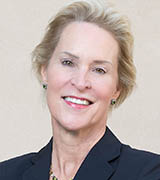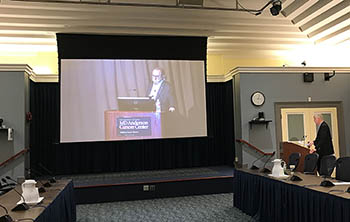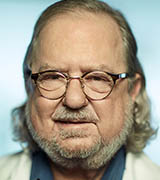Revolutionizing Science
Two Nobel Laureates Wow WALS Audiences
The two Nobel Laureates—Frances Arnold and James Allison—who presented WALS lectures this winter were notable for their “firsts.” Arnold was the first American woman to receive the Nobel Prize in Chemistry. James Allison was the first to present a virtual WALS lecture in this historic time of the COVID-19 pandemic.
Frances Arnold’s Revolution of Evolution

Frances Arnold
In 2018, the Nobel Prize in chemistry was awarded to an American woman for the first time—Frances Arnold, who’s been at the California Institute of Technology (Pasadena, California) since 1986 and is currently the Linus Pauling professor of Chemical Engineering, Bioengineering, and Biochemistry there. Her research involves using evolution to create enzymes that drive chemical reactions. The Wednesday Afternoon Lecture Series was proud to host her on February 25, 2020.
When Arnold joined Caltech, she began using DNA technology to engineer new enzymes that could be used to produce pharmaceuticals, plastics, and other chemicals. She hoped to create enzymes that would be a safe, sustainable alternative to the toxic chemicals currently used in the creation of everyday products. But after a couple of years of failed attempts of trying to “rationally” design new enzymes, Arnold realized she must take a different approach. “You can read, write, edit DNA,” she said, “but we don’t know how to compose it.”
In the early 1990s, she pioneered “directed evolution” (a method that mimics the process of natural selection) to optimize existing enzymes and create new ones. In her first attempt, she engineered a new version of subtilisin—an enzyme derived from the bacteria Bacillus subtilis—that normally functions in the watery environment of a cell. Subtilisin is used in detergents and household cleaning products to remove proteinaceous deposits and stains.
Arnold introduced different mutations into the aprE gene that encodes for subtilisin and then inserted the mutated genes into separate colonies of bacteria to produce new enzymes. Arnold then picked the bacteria producing the best enzyme and started the process again with that mutated gene. After several rounds, she wound up with a version of subtilisin that was 256 times as active in dimethylformamide—a common solvent in chemistry—as it is in its original form.
Arnold’s lab uses directed evolution to create other enzymes that catalyze the production of pharmaceuticals, biofuels, and other chemicals we use regularly. The enzymes can replace toxic chemical compounds normally used in the catalyzation process. Her team starts with an enzyme, creates several genetic blueprints of it, each with a different mutation affecting the enzyme’s site of activity. These genetic blueprints are then put into Escherichia coli bacteria to secrete the enzymes, and the researchers screen those to determine which mutation works best. The process can be repeated to accumulate beneficial mutations that optimize enzyme performance. Often after introducing only a few mutations, Arnold’s team evolves well-functioning enzymes with capabilities beyond what is seen in nature, including the ability to catalyze reactions not known in biology.
Arnold continues to create enzymes as sustainable, environmentally friendly replacements for chemicals currently used in industry. “Let’s use some of [the biological world’s] best design tools,” Arnold said at the end of her talk. “Let’s learn how to use evolution ourselves, so that maybe we can learn to survive on this planet, if not thrive.”
James Allison’s Revolutionary Cancer Treatment

CREDIT: JACQUELINE ROBERTS, OD
Nobel Laureate James Allison delivered his WALS lecture from an empty auditorium at MD Anderson Cancer Center in Houston to a small audience in NIH’s Wilson Hall (Building One) while more than 1,000 people watched remotely.
In the fight against cancer, the immune system may be a better drug target than the cancer itself. This was the vision presented, on March 11, 2020, by Nobel Laureate James Allison during NIH’s first-ever virtual presentation for NIH’s Wednesday Afternoon Lecture Series (WALS).
The WALS lecture was held virtually because of the COVID-19 pandemic and public-health concerns regarding nonessential travel and large group gatherings. Allison delivered his lecture from an empty room at the University of Texas MD Anderson Cancer Center (Houston), where he is the chair of the Department of Immunology. The NIH “audience” consisted of five people in NIH’s Wilson Hall (Building One) including NIH Director Francis Collins and National Cancer Institute senior investigator Steven Rosenberg, another cancer-immunotherapy pioneer, and more than 1,000 people who watched remotely.
Allison’s research on T cells and checkpoint blockades revolutionized cancer treatment and won him a Nobel Prize in Physiology or Medicine in 2018. He and Tasuku Honjo (NIH fellow in the 1970s; Fogarty Scholar-in-Residence in the 1990s) shared the prize “for their discovery of cancer therapy by inhibition of negative immune regulation.”
Allison described his work with two molecules—cytotoxic T-lymphocyte protein 4 (CTLA4) and programmed cell death protein 1 (PD-1)—that function as immune checkpoints. They downregulate immune responses by blocking the T cells’ ability to attack cancer cells. To override the block, he developed an anti-CTLA4 antibody, which eventually became the drug ipilimumab. In 2011, the FDA approved the use of the drug to treat late-stage melanoma; it was the first drug to extend the survival of those with that cancer. (Survival used to be about four months from diagnosis, but with the drug more than 20% lived for at least three years and many lived 10 years and longer). In 2015, Allison won a Lasker Award in recognition of his achievements.

James Allison
He is also exploring how another immunotherapy treatment with a PD-1 inhibitor drug, nivolumab, helps T cells fight cancer. PD-1 suppresses the tumor-killing activity of T cells and works via a different pathway than CTLA4 does. Nivolumab has shown promising results when used on many types of cancers including melanoma and lung cancer.
Allison explained how the drugs perform better together than alone and predicted that the future would bring more combinations of PD-1 and CTLA-4. “I believe that the backbone of all immune therapies is the combination of CTLA-4 and PD-1,” he said.
It used to be that the only way to fight cancer was to attack tumors and malignant cells directly. But Allison’s immunotherapy approach—treating the immune system instead of the tumor—may one day defeat even the most untreatable cancers.
To watch a videocast of James Allison’s WALS talk, “Immune Checkpoint Blockade in Cancer Therapy: Historical Perspective, New Opportunities, and Prospects for Cures,” held on March 11, 2020, go to https://videocast.nih.gov/watch=36081.
WALS Season to Resume in September 2020
The 2019-2020 WALS season was interrupted by the COVID-19 pandemic and lectures are being rescheduled. WALS is expected to resume in September 2019. Visit the WALS website for updates: https://oir.nih.gov/wals
This page was last updated on Thursday, March 24, 2022
